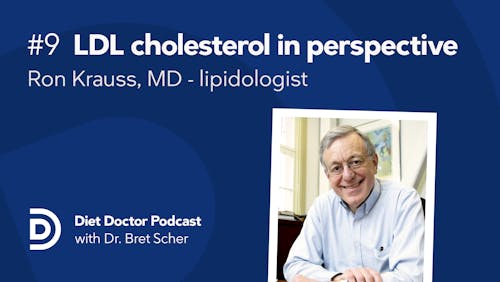Does LDL play an important role in peripheral nerve function?

Medicine loves to simplify topics into a good-or-bad dichotomy, and there is no better example than LDL and HDL cholesterol. However, this simplistic way of thinking disregards the beneficial role LDL plays in human physiology, and the complicated variations we see in both LDL and HDL.
A recent study from Germany published in JAMA Network Open helps highlight a potentially beneficial role for LDL in nerve function. The study enrolled 100 people with type 2 diabetes and measured their nerve function and degree of impairment (neuropathy). They used sophisticated measurements with MRI, direct measurements of nerve conduction, and subjective symptoms to assess impairment. They also measured LDL, HDL and total cholesterol levels and correlated the measurements with nerve function.
MedPage Today: T2D, cholesterol, and neuropathy: What’s the link?
What they found supports the hypothesis that cholesterol, and LDL in particular, might play an important role in nerve function and healing. They found that all measures — MRI, nerve conduction, and subjective symptoms — were worse with low total cholesterol and LDL and better with higher values.
Since this was a prospective cohort study and not a randomized controlled trial, it is useful for generating a hypothesis but not for proving cause and effect. The next step would have to be a more vigorous randomized trial. But one question we should always ask is if there is a potential mechanism that could explain the association?
Again, a proposed mechanism does not prove causation, but it does increase the plausibility of a causal relationship, and thus suggests a more urgent need for a rigorous trial.
In this case, there most certainly is a potential mechanism. The authors postulate that lowering serum cholesterol impairs nerve healing or “regeneration,” and that lack of cholesterol may lead to increased nerve swelling and thus eventual damage and dysfunction. They also postulate that prior studies showing a small benefit from statins and nerve function could have been more related to the anti-inflammatory and anti-oxidative properties of statins rather than the LDL lowering effects.
Even though this study cannot prove LDL and cholesterol improve nerve function in patients with diabetes, it should still serve as a powerful reminder that cholesterol is a vital component of our healthy physiology and is required for numerous normal functions and processes. The push of modern medicine to use pharmaceuticals to lower LDL further in wider segments of the population may not always be the best choice. Studies like this help remind us that we need to consider the broader picture.
For more on cholesterol, please see our guide on cholesterol:


Cholesterol and low-carb diets
Guide Read this guide to learn what cholesterol is, how your body uses it, why low-carb and keto diets may lead to a change in blood cholesterol levels, and whether you should be concerned if your cholesterol increases with a keto or low-carb lifestyle.
Thanks for reading,
Bret Scher, MD, FACC
Earlier
Case study supports keto as treatment for Alzheimer’s disease











